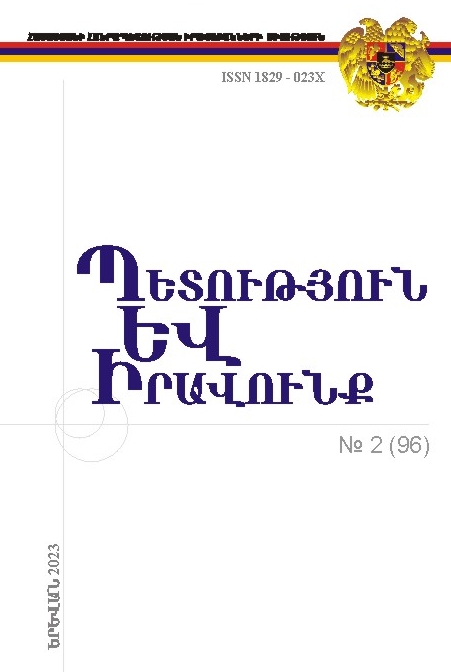IMPROVING THE BALANCE OF JUDICIAL, PROSECUTORIAL AND INVESTIGATIVE, POWERS TO ELIMINATE INVESTIGATIVE ERRORS AT THE PRE-TRIAL STAGES OF THE CRIMINAL PROCESS
DOI:
https://doi.org/10.46991/S&L/2023.96.028Keywords:
Judicial power, prosecutorial power, investigative power, balance of powers, judicial control, prosecutorial supervision, departmental control, procedural control, investigative errorAbstract
Judicial control at the pre-trial stages, prosecutorial supervision and departmental (procedural) control are considered by the author through the prism of the relevant authorities in criminal proceedings - judicial, prosecutorial, investigative. The models of interaction between these authorities in law enforcement practice and the prospects for regulatory improvement of these types of control and supervisory activities are shown in order to comply with the principle of legality in criminal proceedings, protect the rights and freedoms of man and citizen, as well as identify, eliminate and prevent investigative errors.
In modern legal realities, there is a situation where a participant in criminal proceedings, who believes that his rights have been violated by an investigator, is in a state of uncertainty when filing a complaint: should he file a complaint with the head of the investigative agency, the prosecutor, or directly to the court?
It is in the promising models of dynamic judicial control, permanent prosecutorial supervision and total departmental control over the preliminary investigation that we see an effective criminal procedural mechanism for the reasonable implementation of the balance of judicial, prosecutorial and investigative powers, the main direction of development of which is associated with compliance with the principle of legality, protection of human rights and freedoms and citizens, preventing investigative errors, their effective identification, correction and prevention at the pre-trial stages of criminal proceedings.
Downloads
Published
Issue
Section
License
Copyright (c) 2023 State and Law

This work is licensed under a Creative Commons Attribution-NonCommercial 4.0 International License.

